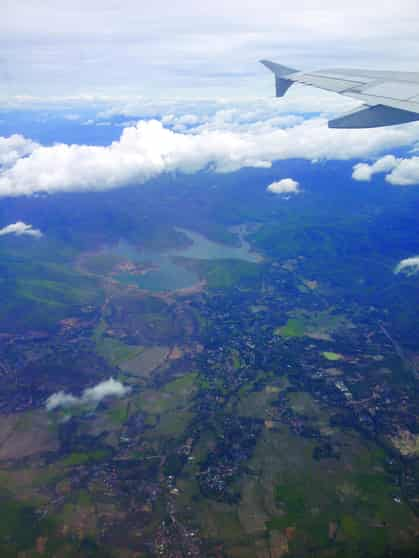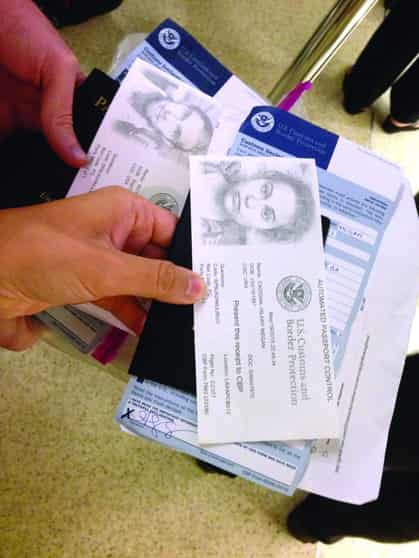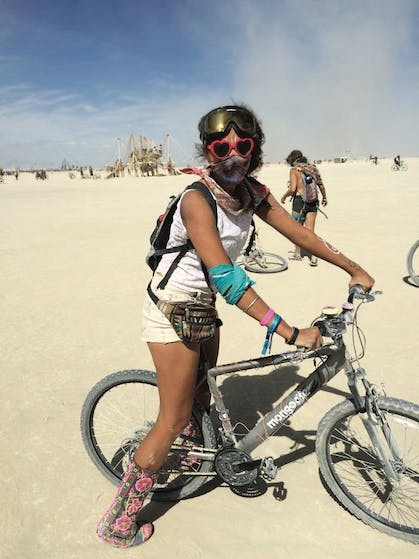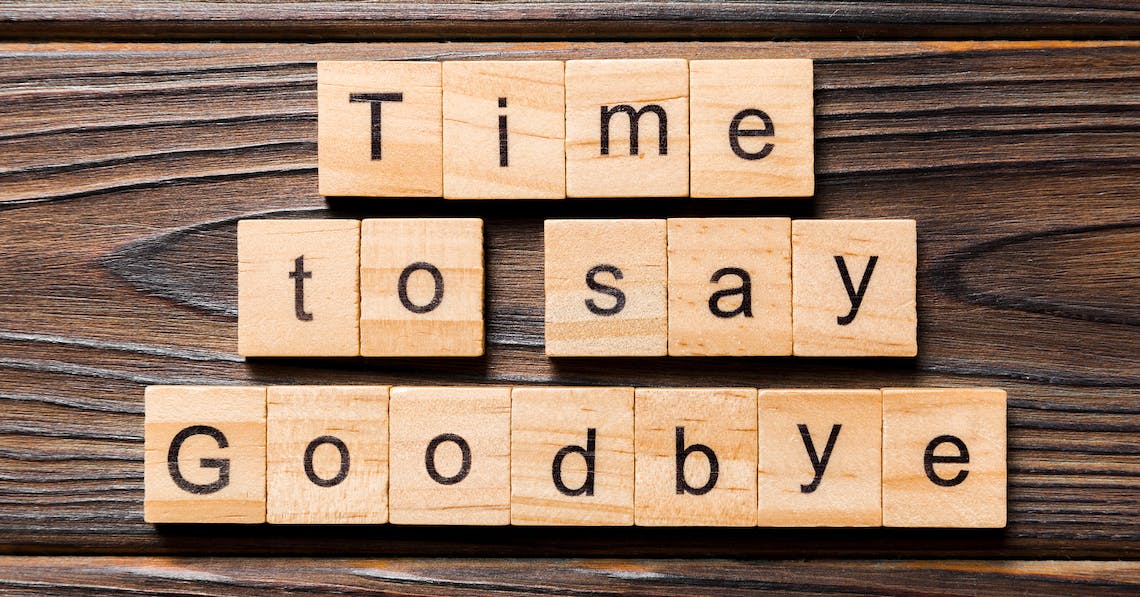
I didn’t really cry though, in part because the anxiety of transition eclipsed all other feelings, leaving me oddly numb. There were so many different stages of departure – giving notice, quitting my job, moving out of our house, selling my motorbike, taking last minute trips to all my favourite street food stalls, multiple going-away parties – that the actual exodus seemed anticlimactic. After three years in Thailand, leaving didn’t feel real.
In retrospect, I realise that I’d probably already delved into the first stage of reverse culture shock: disengagement. Unconsciously, I was trying to ease the process of saying goodbye to a country I loved, one that treated me better than I ever could have imagined, by emotionally detaching myself. On the plane I watched a Blondie documentary and ate Saltines and felt pretty okay.
Twenty-six hours and a smoggy China layover later, we arrived in Los Angeles. As we waited for our connecting flight to Atlanta, I headed to an airport vendor for a bag of chips.
“How much?” I asked the clerk, setting the small bag on the counter as I reached for my newly exchanged, weirdly green currency.
“Three seventy-five,” she replied.
“DOLLARS?!”
Reverse culture shock is real, y’all.

When we got to Atlanta, our former home, we were immediately enveloped by activity. Three days in, still jet-lagged and queasy, we attended a wedding that turned out to be a full-on college reunion. From there, there were trips to the beach, concerts and parties, a visit with Rob’s family in Charleston, then Boston for my youngest brother’s high school graduation, then back down south for a music festival called Bonnaroo in Tennessee. At first, the whole affair felt much like our last trip home, a six-week extravaganza of joyful reunions and carefree activities. America is awesome! thought I. Stage two, euphoria, had taken hold.
The first bout of depression kicked in after Bonnaroo. I know, that sentence might as well be in the encyclopedia under First World Problems. but knowing this made it feel even worse. You’re not an immigrant or a refugee, I chided myself. You have no right to complain. You chose to move to Thailand and you chose to leave, and you are lucky and privileged and don’t deserve to be sad. But I was.
The explosive good times had come to a lull, and in their wake I was faced with cold, hard reality: I’d gone from successfully establishing myself in a sexy foreign country with a job that I loved, to back where I’d started, unemployed in America. Donald Trump had just announced his candidacy for president. What the fuck was I doing here?
I felt like a person at the end of a pirate ship’s plank, a person who has no idea she’s even walking the plank until she extends her left foot and touches nothing but air.
Enter stage three: irritability, hostility, and depression. It hit me like a truck.
But life moved on. We bought a ten-year-old used silver Prius and named her Betty White. We got American cell phones and car insurance and health insurance. We spent a month road-tripping across the country, visiting long-lost friends and relatives. We spent a week dancing in the desert at Burning Man. We’re just reliving our adolescence until our money runs out! I’d tell people with a practiced smile and a slightly embarrassed shrug.
When we finally got back to Atlanta again and moved into a house of our own (and by our own I mean jointly rented with two roommates and a dog named Diego), the relief of settling was palpable. We made the right decision, I told myself. This is where we belong. An even stronger wave of euphoria, almost manic in its intensity, set in.
And then it started raining and didn’t stop for nearly a month.
And then I got a job.
Driving home after a pretty good first day as the new publishing coordinator for a local film industry magazine, I told myself, this is great! You have a job, you have a house, you’re making money again…everything is coming together. Then the brake lights in front of me turned red and before I knew it I was lodged in a congested freeway that might as well have been a parking lot. Oh. Right. I watched the endless, endless rain splashing dully onto Betty White’s dirty windshield, and the wave rolled out again. I felt defeated. How did my life lead to this? Just a few months ago I was bathing a goddamn baby elephant in a river. And somehow my own conscious decisions led me here: trapped like a rat on I-85 like any other workaday shmuck, crying onto my steering wheel.

It’s now been six months since I left Chiang Mai. I’ve found a slightly better route home from work – it takes 45 minutes instead of an hour now! – and I’ve got an arsenal of podcasts to keep me from losing my shit. I’m writing again, and I’m remembering to appreciate the little things, like American hip-hop and art museums and Trader Joe’s wine. I also appreciate the bigger things, like being able to call my best friend on the phone and living on the same continent as my family. Of course, if I said I don’t still think about Thailand every day I’d be lying. I miss the palm trees and the street dogs, the smell of gai tod and the burn of nam prik. I miss beer with ice and songteaws and ending every sentence with ka. I miss the jungle, I miss the mountains, I miss my motorbike. I miss my Chiang Mai community. I miss Citylife.
I can’t say I’ve completely recovered yet. According to the experts, reverse culture shock can last up to 18 months, so check back in with me in 2017. But I can say that things are getting better. Slowly, in fits and bursts and with backslides aplenty, but better. What helps is to remember that nothing is permanent. Being an expat taught me to embrace transience, and I’m grateful for that, because forever is always an illusion.
Once when I was 20 years old and backpacking in Amsterdam, hopelessly stoned and wearing a knit cap with earflaps that said Amsterdam, I read on the wall of a hostel, “home is in your head.” I wrote the phrase in my journal and had one of those infinite feelings that 20-year-olds are always having.
Eight years later, as a crotchety old nearly-30, the thought remains with me, not just as a traveller’s cliché (even if that’s what it is) but as a source of comfort when I feel the most lost. In the six months I’ve been back in America, I’ve drawn upon it often, reminding myself that home is a place no one can take away from me (not even myself), because it’s embedded in my skull, and expanding all the time. Every place I’ve stepped, every person I’ve known, every experience I’ve had becomes a part of this home I carry inside.
In that way, I never left Chiang Mai, and I never will.
